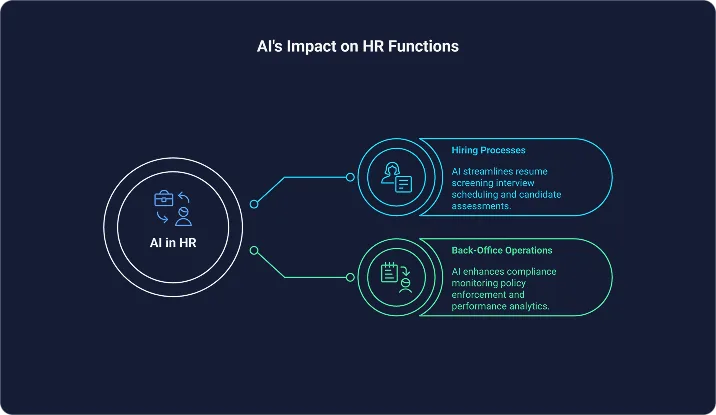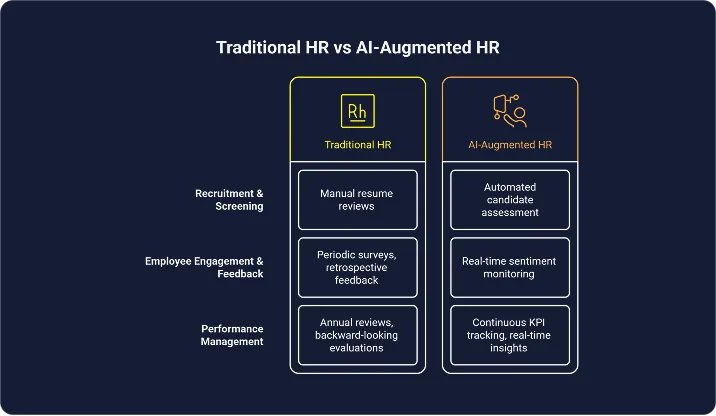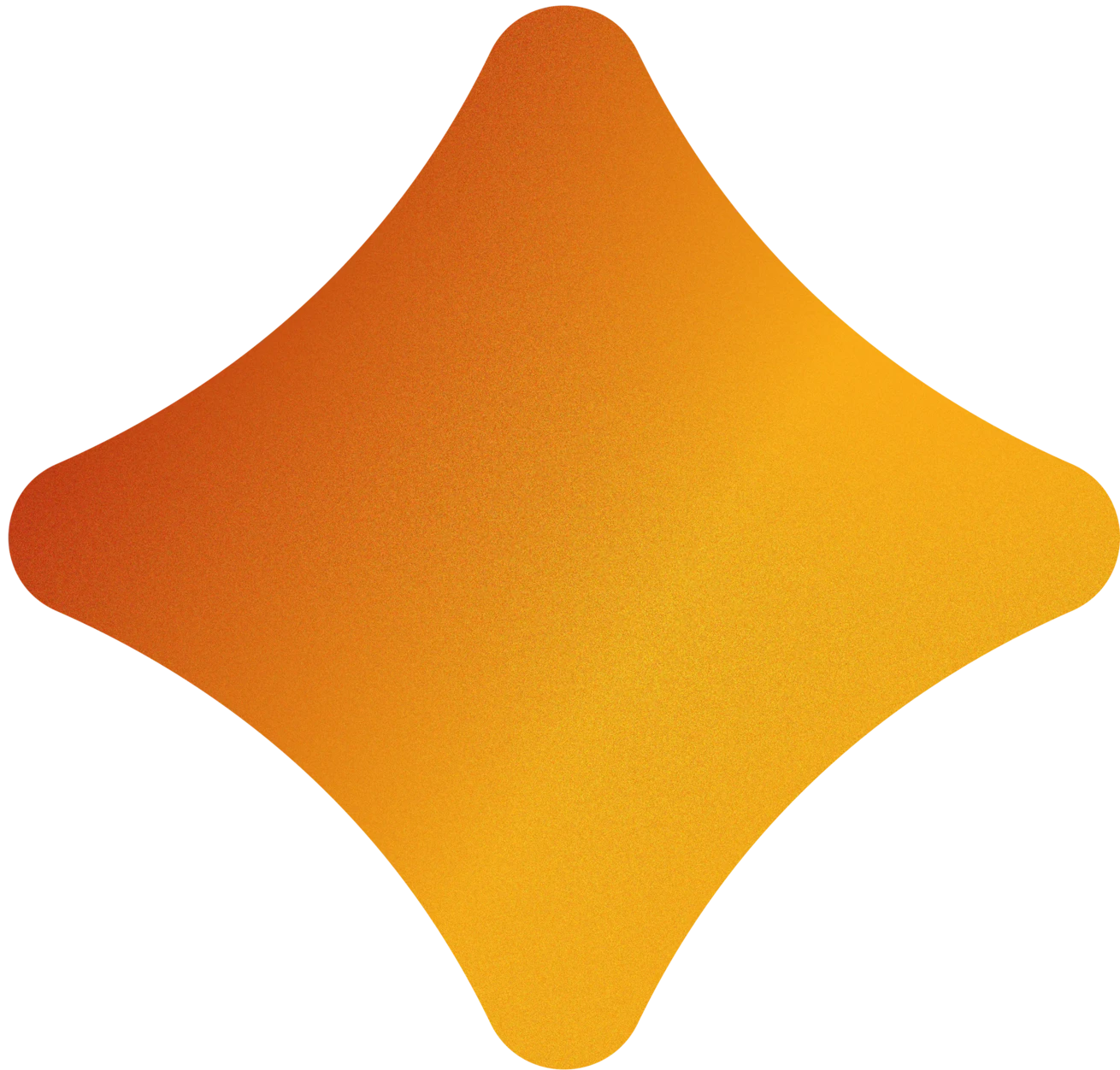Future of Hiring
Will Human Resources Be Replaced by AI? Key Insights and Predictions

Artificial intelligence is transforming human resources, but not in the way many fear. Rather than replacing HR professionals, AI is redefining their roles by automating routine tasks and unlocking new opportunities for strategic leadership. From resume screening and candidate assessments to real-time engagement tracking, AI is enabling teams to operate with greater speed, accuracy, and insight.
The concern that AI will make HR obsolete misses a deeper truth: the future of HR isn’t human or machine, it’s human with machine. Platforms like InterWiz, for example, now conduct structured, early-stage interviews that assess both technical and behavioral competencies, helping companies scale hiring while maintaining quality and fairness.
In this article, we’ll explore what AI can realistically take over, where human judgment remains essential, and how HR professionals can evolve to lead in an AI-powered workplace.
Key Takeaways
AI can automate nearly half of HR tasks, but human skills like empathy and strategic thinking remain irreplaceable.
While AI significantly enhances processes like recruitment and performance management, human oversight is crucial for complex decision-making.
The future of HR is about collaboration between AI and human professionals, focusing on strategic initiatives and employee well-being.
Can AI Replace Human Resources?
AI is redefining how HR functions, but it’s not replacing human professionals; it’s reshaping their roles. While AI excels at automating routine, rules-based tasks like resume screening, interview scheduling, and candidate assessments, it falls short when context, nuance, and human judgment are required.
Beyond hiring, AI can efficiently manage data-heavy processes such as compliance monitoring, policy enforcement, and performance analytics. These are areas where speed, accuracy, and scale matter, and AI delivers. But the strategic core of HR, shaping company culture, resolving interpersonal conflicts, influencing leadership, and driving employee engagement, requires empathy, ethical discernment, and situational awareness that AI cannot replicate.
As automation handles the operational burden, HR leaders are stepping into more strategic roles. They’re becoming orchestrators of people systems, using AI as a tool to enhance decision-making rather than replace it. The path forward isn’t about choosing between AI and HR. It’s about using AI to amplify what HR does best: aligning people strategy with business outcomes.
What Parts of HR Can AI Realistically Replace?

AI is best suited to transform HR tasks that are repetitive, high-volume, and rules-based, functions where speed and consistency matter more than nuance. Resume screening, interview scheduling, and initial candidate assessments are prime examples.
Beyond hiring, AI is increasingly applied to back-office operations such as compliance monitoring, policy enforcement, and performance analytics. These systems can process vast datasets in real time, flag anomalies, and generate insights faster than human teams ever could, improving accuracy while cutting operational overhead.
What Human-Centric HR Tasks AI Still Can’t Do
Despite its capabilities, artificial intelligence falls short in areas requiring a human touch. Tasks such as:
Empathy-driven conflict resolution
Diversity, equity, and inclusion (DEI) strategies
Cultural alignment needs emotional intelligence, a deep understanding of human behavior, and the ability to navigate complex social dynamics.
AI can provide data and insights, but it cannot replicate the nuanced understanding and empathy human beings bring. For example, creating a DEI strategy requires understanding the unique cultural and social contexts of an organization and its company culture, which AI lacks the emotional cognition to grasp. Hence, the human element remains indispensable in these critical HR functions.
How AI is Reshaping, Not Replacing, HR Roles
AI is redefining the scope of HR, not by eliminating jobs, but by changing what those jobs require. As automation takes over repetitive tasks, HR professionals are shifting their focus from process management to strategic initiatives.
This evolution allows HR teams to prioritize initiatives like workforce planning, talent development, and employee engagement. Instead of spending hours scheduling interviews or compiling performance reports, they're using AI-driven tools to extract actionable insights, improve decisions, and proactively manage people systems.
For example, machine learning models can identify early signs of employee turnover, enabling HR leaders to intervene before it becomes a business issue. Virtual assistants can automate onboarding workflows and policy responses, freeing up time for more meaningful human interaction.
The result is a rebalanced HR function, where AI handles the operational load, and people drive culture, strategy, and trust. HR isn’t being replaced; it’s being empowered.
Traditional HR vs AI-Augmented HR
Traditional HR has long relied on manual processes, reviewing resumes one by one, collecting feedback through annual surveys, and conducting infrequent performance reviews. While foundational, these workflows are often slow, reactive, and prone to inconsistency.
AI-augmented HR flips this model by automating repetitive tasks and enhancing decision-making with real-time data. Recruitment tools can instantly screen candidates, engagement platforms monitor sentiment continuously, and performance systems track progress against goals with precision.
This shift empowers HR professionals to move beyond administrative execution and focus on strategic impact. By reducing operational friction, AI enables faster hiring, stronger employee insights, and more proactive talent management.
In the sections below, we’ll explore how AI is transforming three core HR functions: recruitment and screening, employee engagement and feedback, and performance management, and what that means for the future of work.

Recruitment and Screening
Recruitment has traditionally relied on manual resume reviews, scheduling back-and-forth, and subjective first impressions, all of which are time-consuming and prone to bias. These inefficiencies not only slow down hiring but can also lead to inconsistent candidate evaluations.
AI-powered recruitment tools are changing that. For example, platforms like InterWiz can automate early-stage hiring tasks like assessing candidate fit and conducting structured, on-demand interviews. These systems use data-driven criteria to evaluate applicants, enabling faster, fairer, and more consistent shortlisting.
The benefits are tangible: reduced time-to-hire, improved hiring accuracy, and a more scalable process for high-volume recruiting. By eliminating repetitive tasks, recruiters can focus on what matters most: building relationships, enhancing candidate experience, and making strategic talent decisions.
Rather than replacing the recruiter, AI acts as an intelligent assistant, elevating the process with speed and objectivity while leaving the final judgment to human expertise.
Employee Engagement and Feedback
Measuring employee engagement has traditionally relied on periodic surveys and retrospective feedback, methods that often miss emerging issues and fail to capture day-to-day sentiment. This time lag limits HR’s ability to take timely action and support workforce morale proactively.
AI is closing that gap. Modern engagement platforms now use natural language processing, behavioral analytics, and chatbot interactions to monitor employee sentiment in real time. These tools can detect early warning signs of disengagement, such as dips in communication or declining participation, and surface insights that would be difficult to identify manually.
Generative AI takes it a step further by enabling personalized, context-aware responses to employee queries and feedback. Whether answering policy questions or collecting input during key transition periods, AI-powered systems help HR stay connected with employees at scale, without losing the human touch.
The result is a more responsive and data-informed engagement strategy. By acting on real-time signals, HR leaders can address issues before they escalate, improve retention, and build a culture rooted in continuous feedback and support.
Performance Management
Traditional performance management often revolves around annual reviews, static, backward-looking evaluations that miss the nuance of day-to-day contributions. This delayed feedback loop can leave employees unclear on expectations and disengaged from growth opportunities.
AI changes that dynamic. By continuously tracking key performance indicators (KPIs) and work patterns, AI-powered systems provide real-time insights into individual and team productivity. These platforms can flag deviations, recognize milestones, and deliver timely feedback that helps managers and employees course-correct before issues escalate.
For example, AI can analyze project timelines, communication trends, and goal progression to identify where support or recognition is needed. This level of visibility allows HR and leadership to respond faster, tailor coaching, and drive performance more effectively.
More than just automation, AI makes performance management adaptive, shifting it from a compliance activity to a strategic, ongoing process. When used responsibly, it supports a culture of transparency, accountability, and continuous improvement.
Ethical Concerns and Limitations of AI in HR
Despite its growing role in HR, AI brings with it serious ethical and operational risks that can’t be ignored. When not properly designed or monitored, AI systems can perpetuate bias, make opaque decisions, and mishandle sensitive data, undermining the very outcomes they aim to improve.
One of the most cited examples is Amazon’s discontinued AI recruiting tool, which was found to systematically downgrade resumes that included female-associated terms. This underscores the danger of training algorithms on biased historical data, even unintentionally. Additionally, many AI systems lack explainability, making it difficult for HR professionals to understand or justify how a candidate was scored or filtered.
Privacy is another critical concern. AI platforms often process large volumes of employee data, raising questions about consent, transparency, and the potential misuse of personal information.
To address these risks, governments and institutions are introducing guardrails. The EU AI Act and U.S. Equal Employment Opportunity Commission (EEOC) guidance on AI fairness are early steps toward establishing standards for responsible AI use in hiring and workplace decision-making.
Ultimately, AI in HR should never operate on autopilot. Human oversight is essential to ensure fairness, interpret results, and uphold ethical standards. Technology can enhance decision-making, but accountability must remain human.
Expert Predictions: Will HR Ever Be Fully Automated?
While AI is rapidly transforming HR workflows, full automation remains unlikely and unnecessary. Industry experts consistently emphasize that AI’s role is to augment human capabilities, not replace them.
According to Deloitte’s 2024 Global Human Capital Trends report, 75% of organizations expect to increase the use of AI in HR, but only 8% believe their HR functions will be fully automated in the next five years. Instead, the focus is shifting toward hybrid models where AI handles repetitive tasks, and humans lead strategy, culture, and decision-making.
AI excels at managing high-volume, rules-based activities like scheduling, compliance tracking, and data analysis. But the core competencies of HR, empathy, ethical judgment, conflict resolution, and organizational leadership, remain firmly human domains.
The future of HR lies in synergy. As AI reduces administrative burdens, HR professionals are freed to focus on people-first initiatives that drive business value. The organizations that thrive will be those that treat AI not as a replacement, but as a strategic partner.
What HR Professionals Should Do to Stay Ahead of AI
To stay ahead in an AI-augmented HR landscape, HR professionals should focus on upskilling in areas like data literacy, AI tools, hr certifications, and change management. Certifications and courses in AI fluency are highly recommended to remain competitive and relevant.
Additionally, using AI platforms like InterWiz, which specialize in automating structured early-stage interviews, assessing both technical and behavioural competencies, and providing consistent, unbiased candidate evaluations, can significantly streamline the recruitment process. These tools free HR professionals from repetitive administrative tasks, allowing them to focus on strategic work that requires human judgment and emotional intelligence.
Additionally, developing skills in strategic thinking, adaptability, and interpersonal communication will be crucial. These skills will enable HR professionals to effectively leverage AI tools and provide the human touch essential in HR roles, as HR professionals play a vital role in this process.
Bottom Line: Augment, Don’t Fear - The Human in HR Stays
AI is a powerful tool that supports HR functions but doesn’t replace the human element. The future of HR is about leveraging AI to enhance efficiency and real value, not about being replaced by it.
HR professionals should embrace AI tools like InterWiz and proactively integrate them into their workflows. As the saying goes, “The future of HR isn’t human or AI, it’s human with AI.” This collaboration will lead to better employee experiences and more robust organizational outcomes, enhancing their HR career.
FAQs about Will HR be Replaced by AI
Can AI fully replace HR functions?
AI can enhance HR functions, but it can't fully replace the human touch essential for tasks that need empathy and complex decision-making. Human judgment will always play a vital role in HR.
What HR tasks can AI automate?
AI can automate various HR tasks like resume screening, interview scheduling, compliance checks, and performance analysis, making your job a lot easier!
How are leading companies using AI in HR?
Leading companies like Unilever and IBM are leveraging AI to streamline their hiring processes, decrease bias, and gain deeper insights into candidates. This not only speeds up recruitment but also enhances the overall quality of hires.
What skills are essential for HR professionals in the AI era?
In the AI era, HR professionals really need to hone their empathy, strategic thinking, adaptability, critical thinking, and data literacy. These skills will help you navigate the evolving landscape and support your team effectively.
Are there ethical concerns with using AI in HR?
Absolutely, there are ethical concerns with AI in HR, like bias in algorithms and the need for transparency. It's crucial for organizations to work towards more equitable practices as regulation develops.

High Quality Screening with AI Interviews
Automated interviews built for speed, scale, and accuracy.
🔥 Full features, no credit card required.